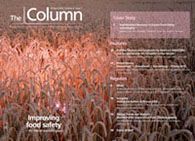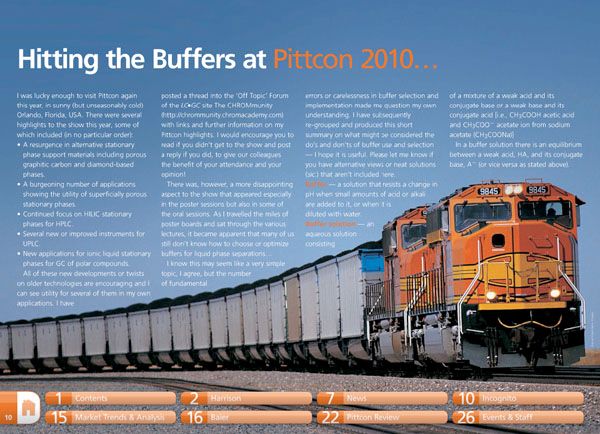Hitting the Buffers at Pittcon 2010...
As I travelled the miles of poster boards and sat through the various lectures, it became apparent that many of us still don?t know how to choose or optimize buffers for liquid phase separations.
I was lucky enough to visit Pittcon again this year, in sunny (but unseasonably cold) Orlando, Florida, USA. There were several highlights to the show this year, some of which included (in no particular order):
All of these new developments or twists on older technologies are encouraging and I can see utility for several of them in my own applications. I have posted a thread into the 'Off Topic' Forum of the LCGC site The CHROMmunity with links and further information on my Pittcon highlights. I would encourage you to read if you didn't get to the show and post a reply if you did, to give our colleagues the benefit of your attendance and your opinion!
There was, however, a more disappointing aspect to the show that appeared especially in the poster sessions but also in some of the oral sessions. As I travelled the miles of poster boards and sat through the various lectures, it became apparent that many of us still don't know how to choose or optimize buffers for liquid phase separations.

Polysorbate Quantification and Degradation Analysis via LC and Charged Aerosol Detection
April 9th 2025Scientists from ThermoFisher Scientific published a review article in the Journal of Chromatography A that provided an overview of HPLC analysis using charged aerosol detection can help with polysorbate quantification.
Removing Double-Stranded RNA Impurities Using Chromatography
April 8th 2025Researchers from Agency for Science, Technology and Research in Singapore recently published a review article exploring how chromatography can be used to remove double-stranded RNA impurities during mRNA therapeutics production.














